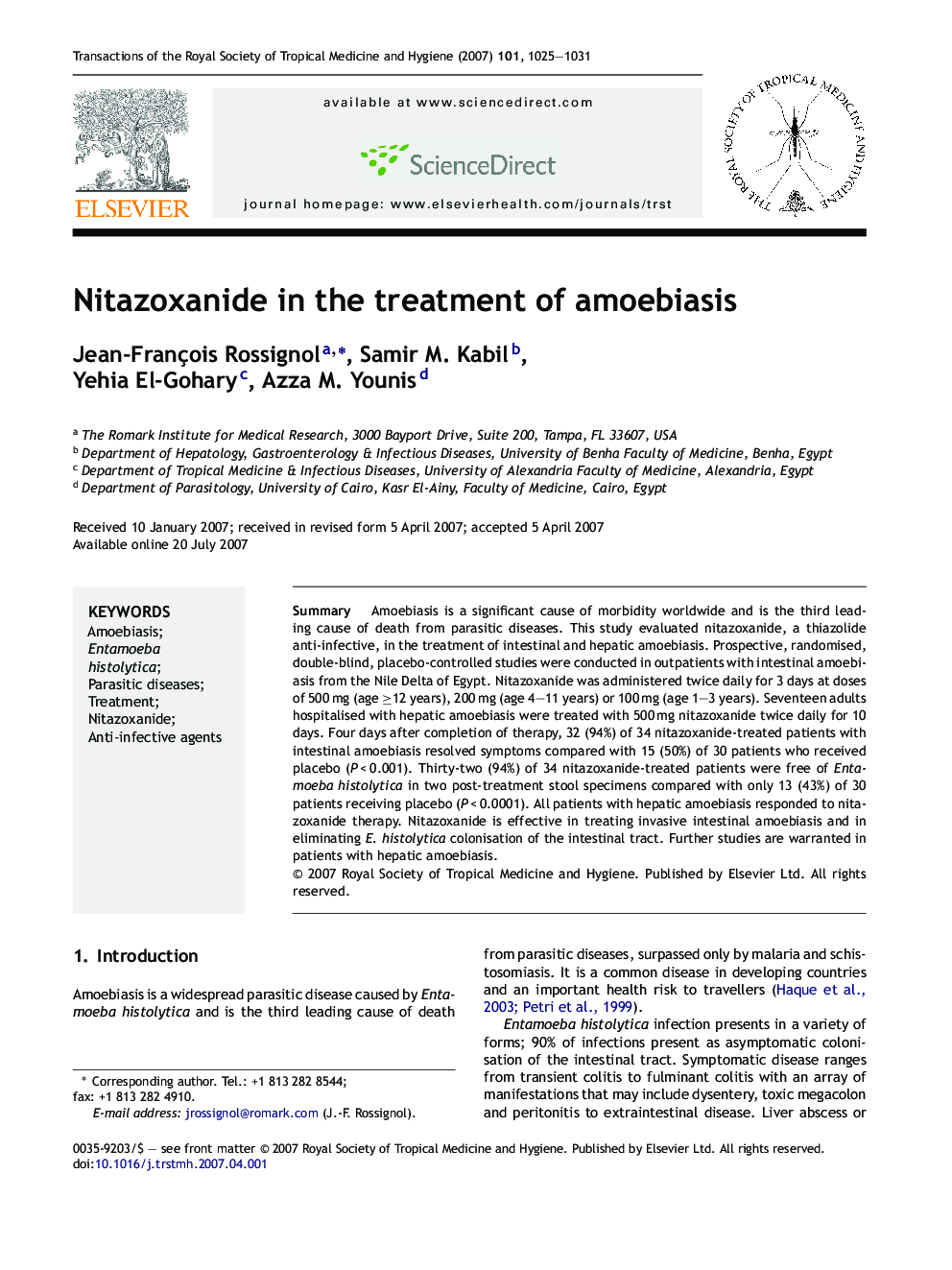| Article ID | Journal | Published Year | Pages | File Type |
|---|---|---|---|---|
| 6137679 | Transactions of the Royal Society of Tropical Medicine and Hygiene | 2007 | 7 Pages |
Abstract
Amoebiasis is a significant cause of morbidity worldwide and is the third leading cause of death from parasitic diseases. This study evaluated nitazoxanide, a thiazolide anti-infective, in the treatment of intestinal and hepatic amoebiasis. Prospective, randomised, double-blind, placebo-controlled studies were conducted in outpatients with intestinal amoebiasis from the Nile Delta of Egypt. Nitazoxanide was administered twice daily for 3 days at doses of 500 mg (age â¥12 years), 200 mg (age 4-11 years) or 100 mg (age 1-3 years). Seventeen adults hospitalised with hepatic amoebiasis were treated with 500 mg nitazoxanide twice daily for 10 days. Four days after completion of therapy, 32 (94%) of 34 nitazoxanide-treated patients with intestinal amoebiasis resolved symptoms compared with 15 (50%) of 30 patients who received placebo (P < 0.001). Thirty-two (94%) of 34 nitazoxanide-treated patients were free of Entamoeba histolytica in two post-treatment stool specimens compared with only 13 (43%) of 30 patients receiving placebo (P < 0.0001). All patients with hepatic amoebiasis responded to nitazoxanide therapy. Nitazoxanide is effective in treating invasive intestinal amoebiasis and in eliminating E. histolytica colonisation of the intestinal tract. Further studies are warranted in patients with hepatic amoebiasis.
Keywords
Related Topics
Life Sciences
Immunology and Microbiology
Applied Microbiology and Biotechnology
Authors
Jean-François Rossignol, Samir M. Kabil, Yehia El-Gohary, Azza M. Younis,
